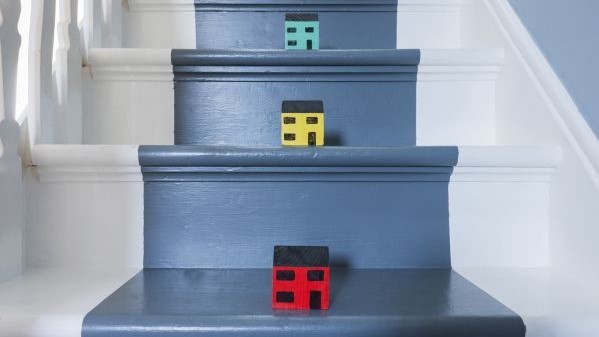The credit score needed to be approved for a mortgage in the US has hit its highest level in more than two decades, following a year of frantic refinancing activity and increased caution from lenders over who they would lend to. According to the latest Federal Reserve Bank of New York data, the typical credit score for mortgage approvals rose to 786 in the third quarter of last year, putting the onus on Americans to make sure their score is up to scratch, and if it isn’t, to seek out credit repair services to help.
Throughout last year, mortgage companies gradually tightened their lending criteria amid fear of the impact that COVID-19 and its fallout would have on the ability of borrowers to make their payments. At the same time, the best refinance mortgage companies witnessed a boom in refinancing activity – little wonder, given that the average 30-year fixed mortgage rate hovered either at or near to record lows for most of 2020. And as those who already own a home typically have higher credit scores than those who don’t, it’s easy to see how the score could have edged up.

What credit score do I need to get a mortgage?
The more onerous credit requirements could, of course, prove off-putting to those yet to get on the ladder. Indeed, with the Fed’s data showing that just 28% of loans went to borrowers with a score of less than 760, and the average FICO score in the US sitting at 711, a lot of borrowers could have difficulty securing the mortgage they want. This is particularly the case in the current climate, with many people’s finances having been decimated by the pandemic.
So if you’re looking to make the jump, what can you do to boost your credit score for mortgage acceptance?
How can I boost my credit score?
There’s no denying that having bad credit can hurt your finance prospects, but a poor score isn’t a life sentence. Happily, there are plenty of ways you can improve your credit score, leaving you better able to access the mortgage you want in the future. Here’s how.
Check your report
The first thing you need to do is check your credit score so you know what you’re dealing with, paying close attention to any potential errors on your report. If you spot any, disputing them with the relevant credit bureau is a must.
Build your score
Once you know where you stand, you can work on improving things. One of the best ways to build your score is to add positive credit information to show you’re a responsible borrower; someone with an acceptable score may want to take out a small personal loan or a credit card with a low limit, but those who really need to improve things may look at a credit-builder loan or secured credit card.
A credit builder loan keeps the loan in a separate savings account, and once paid off, you’ll get the money back – giving you a savings boost as well as a better credit score. Secured credit cards, meanwhile, require you to give a refundable security deposit, which will normally be your credit limit. The money will be repaid once you clear the balance and close the account.
No matter which avenue you go down, staying on top of your credit commitments is essential. It’s vital to never miss a payment – late payments can hurt your score even more – but if you keep things in check, it could be a great way to build your score.

Consolidate debts
If you’re already buckling under the weight of revolving debt, taking out a debt consolidation loan could be a way to get back on track. Not only will it be easier to keep on top of things, but once your credit commitments have been repaid and your credit utilization ratio is at an acceptable level, your score could get a welcome boost.
Fix your credit score
If you need a bit of extra help to monitor your score and look for ways to improve things, it could be wise to seek a credit repair company. They can be particularly helpful if there’s anything to dispute on your report, but can also offer advice on how to build your score and boost your chances of mortgage acceptance.
Can I get a mortgage if my credit score is below 786?
Not having the ideal credit score for mortgages doesn’t necessarily block you from the market – though it might block you from accessing the very best deals. The lowest mortgage rates on offer are reserved for those who have stellar credit scores, as mortgage lenders view them as being a less risky investment. Yet a lot of borrowers were still able to access credit despite having a score of less than 786, though it’s likely they had to pay a higher rate for the privilege - working out what mortgage you can afford is therefore a must.
The key is to shop around and find the best mortgage lenders, together with their available products, as rates can vary considerably. This applies whether you’re looking for your first loan or are waiting in line to refinance – something that in itself could slash your monthly payments – and could mean you’re able to shave thousands of dollars off the cost of your mortgage. So, once you’ve got your credit score in check, it could pay to do some digging.

